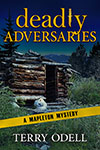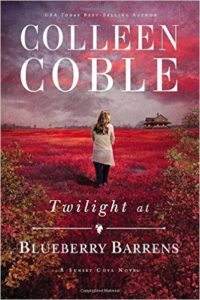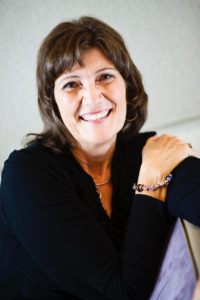It’s Valentine’s Day. Can Mysteries Contain Romance?
Terry Odell

Image by Myriams-Fotos from Pixabay
It’s Valentine’s Day, which probably brings to mind flowers and chocolate, not murder and mayhem. Is there room for romance in a mystery novel? As a writer of romantic suspense as well as mysteries, I say yes, but it’s handled differently.
Note: I’m saying romance, not sex. And it has to belong, not as my high school English teacher said back in the day when banned in Boston guaranteed book sales, “Just open the manuscript, throw in a sex scene, and then get back to what you were writing.”
In a romantic suspense, which falls under the umbrella of the romance genre, things move quickly. Hero and heroine are brought together and must reach their Happily Ever After, or at least the promise of one by the end of the book, all the while dealing with the mystery, suspense, or whatever challenge the author throws at them. I say “promise” of a HEA, because the mystery/suspense/challenge is probably reaching its conclusion in a matter of days. Maybe a week or two, tops. That’s very fast to get to the white picket fence, kids and a dog stage. Not being fond of epilogues, I prefer to go the “promise” route in my books.
In series mysteries, the author has a lot more time to allow characters to develop a relationship. Things can grow slowly. They can change. Partners can split up, one can die, another can show up. They may never get to the HEA, or even the promise, but there can still be the elements of romance in the book. My preference in both reading and writing is to show the characters dealing with the mystery outside of work as well.
In my first version of Deadly Secrets, I included a brief—very brief—foreplay scene. Mystery readers hit the roof, screaming Porn! This was an indie-published book, so I could remove that scene and republish. I’d shopped it around to traditional publishers, and none had mentioned that scene as being the kiss of death, but I wonder whether an editor would have nixed it, had it gotten that far. For the record, my narrator was disappointed that I’d cut that scene, which he’d already seen.
Romantic elements can be subtle—and at first, they should be. In fact, when I started writing, I thought I was writing a mystery. I showed chapters to my daughters, and both said, “Mom, it’s a romance.” Huh? I’d never read a romance so how could I be writing one? Both of them pointed to the same paragraph. Later, after Finding Sarah, my first novel, was published, a reviewer for Orlando Magazine pointed to the same paragraph.
That paragraph? Setup: Shopkeeper Sarah has been robbed at gunpoint. The detective who comes to investigate takes her to the nearby diner while the crime scene tech does his work in the shop.
Sarah swallowed a morsel of the sweet muffin. Suddenly ravenous, she relished the rest of it. She looked up into those deep brown eyes again, glimpsing flecks of hazel this time.
And here I thought I was writing description, not an entirely different genre.
What sorts of not-in-your-face elements can work their way into a mystery?
Sharing a meal. Going to one of their favorite places. Doing small favors. Giving gifts.
 One of the most ‘romantic’ Valentine’s Day gifts I received from the Hubster was a Swiss Army knife. Why?
One of the most ‘romantic’ Valentine’s Day gifts I received from the Hubster was a Swiss Army knife. Why?
Back story. I was a huge MacGyver fan, and my tv watching place was a swivel chair near the tv. Hubster sat farther back on the couch, so my back was to him. As I was watching MacGyver work his magic with his knife, I muttered to myself, “Why don’t I have one of those?” Why was I surprised to get one? Because it showed me he listened.
 Another year, I got an electronic tire pressure gauge. (Along with flowers and chocolates, so he was covering his bets.) Why was that special? He’s a guy, and guys are hard-wired to be protectors, and he wanted me safe. Since I understood that this was his way of showing affection, I accepted the gift with pleasure. It didn’t hurt that he was the one who checked my tires more often than I did. Much more often.
Another year, I got an electronic tire pressure gauge. (Along with flowers and chocolates, so he was covering his bets.) Why was that special? He’s a guy, and guys are hard-wired to be protectors, and he wanted me safe. Since I understood that this was his way of showing affection, I accepted the gift with pleasure. It didn’t hurt that he was the one who checked my tires more often than I did. Much more often.
Cozy mysteries often have strong elements of romance building across a series. I don’t write/read cozies, you say. Ah, but cozies aren’t the only mysteries with romantic elements.
To name just a few: CJ Box’s Joe Picket series. Faye Kellerman’s Peter and Rina series. Robert B. Parker’s Spenser. Jonathan Kellerman’s Alex Delaware. Elizabeth Peters’ Amelia Peabody. Laurie R. King’s Mary Russell. The list goes on. John Sandford. Harlan Coben. Sue Grafton (who might have one of the most romantic scenes I’d read in a long time.)
Attraction has been building. Kinsey and her romantic interest are at dinner, and “shall we go to my place?” comes up. She says, “Tell me you didn’t put clean sheets on the bed.” He says, “For you, I bought new.”
All right, TKZers, the heart’s in your court. Any romantic gestures to share? Romance/romantic elements in mysteries? Your thoughts? Add to my list.
How can he solve crimes if he’s not allowed to investigate?
 Gordon Hepler, Mapleton’s Chief of Police, has his hands full. A murder, followed by several assaults. Are they related to the expansion of the community center? Or could it be the upcoming election? Gordon and mayor wannabe Nelson Manning have never seen eye to eye. Gordon’s frustrations build as the crimes cover numerous jurisdictions, effectively tying his hands.
Gordon Hepler, Mapleton’s Chief of Police, has his hands full. A murder, followed by several assaults. Are they related to the expansion of the community center? Or could it be the upcoming election? Gordon and mayor wannabe Nelson Manning have never seen eye to eye. Gordon’s frustrations build as the crimes cover numerous jurisdictions, effectively tying his hands.
Ebook Available for preorder now. Paperback available now.
 Terry Odell is an award-winning author of Mystery and Romantic Suspense, although she prefers to think of them all as “Mysteries with Relationships.”
Terry Odell is an award-winning author of Mystery and Romantic Suspense, although she prefers to think of them all as “Mysteries with Relationships.”


